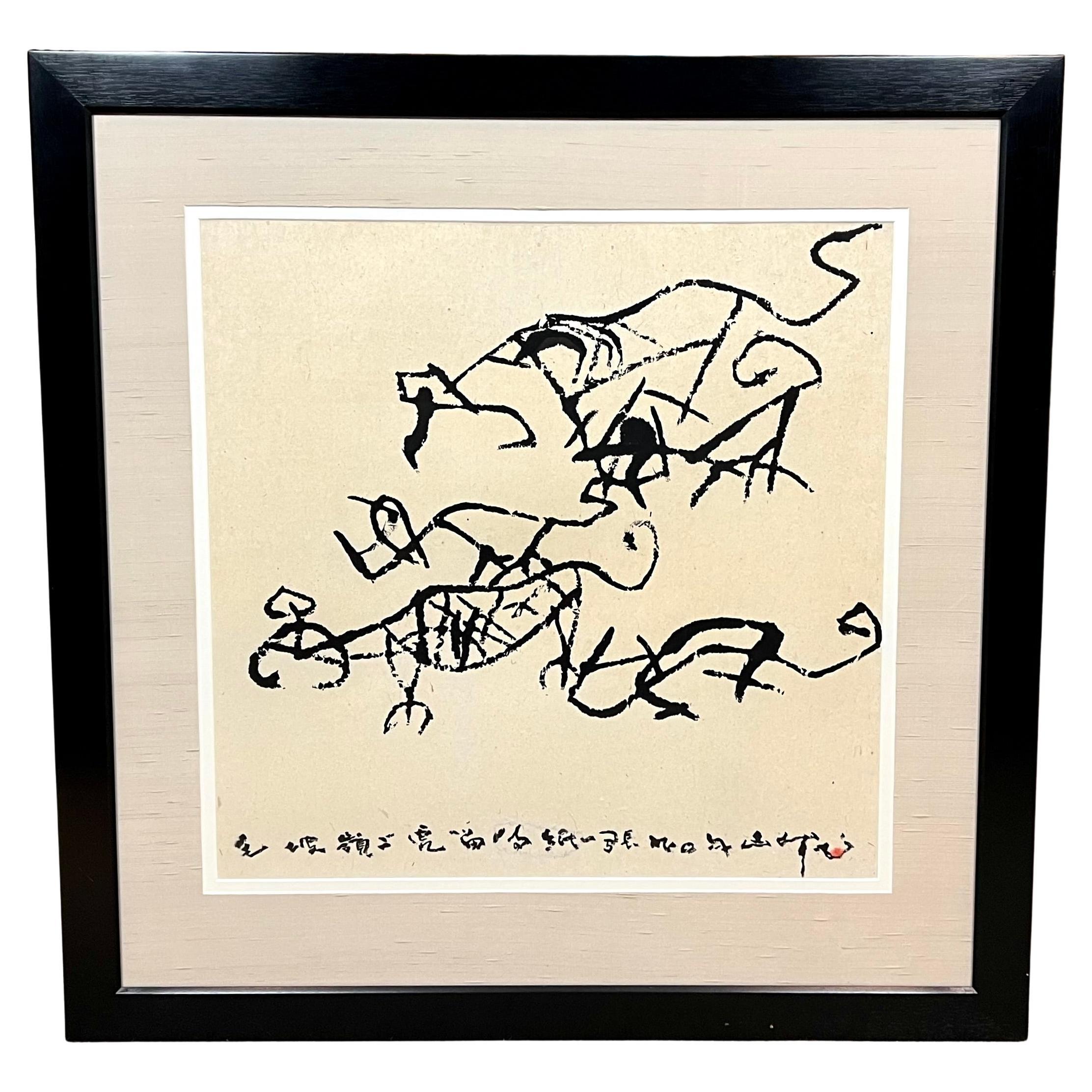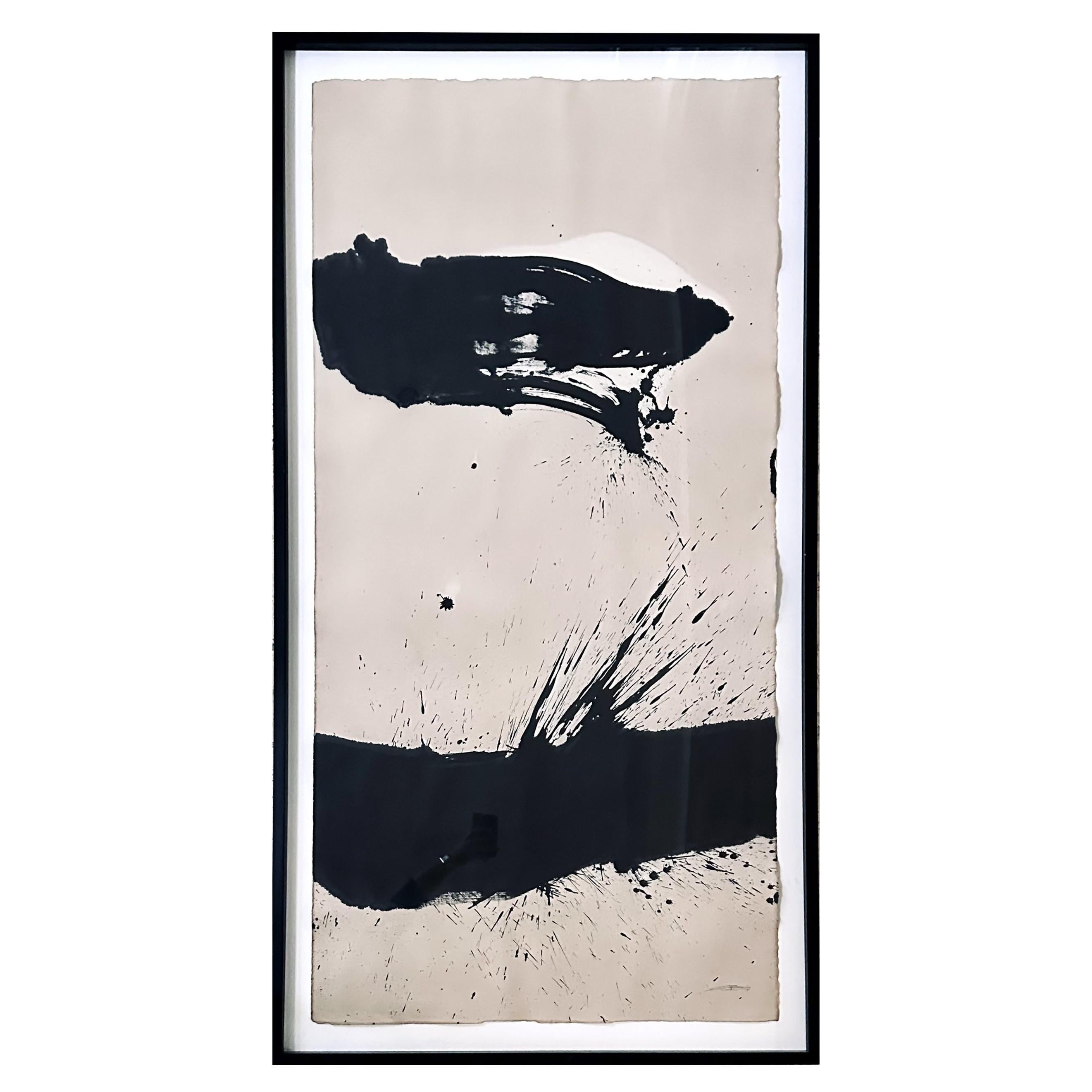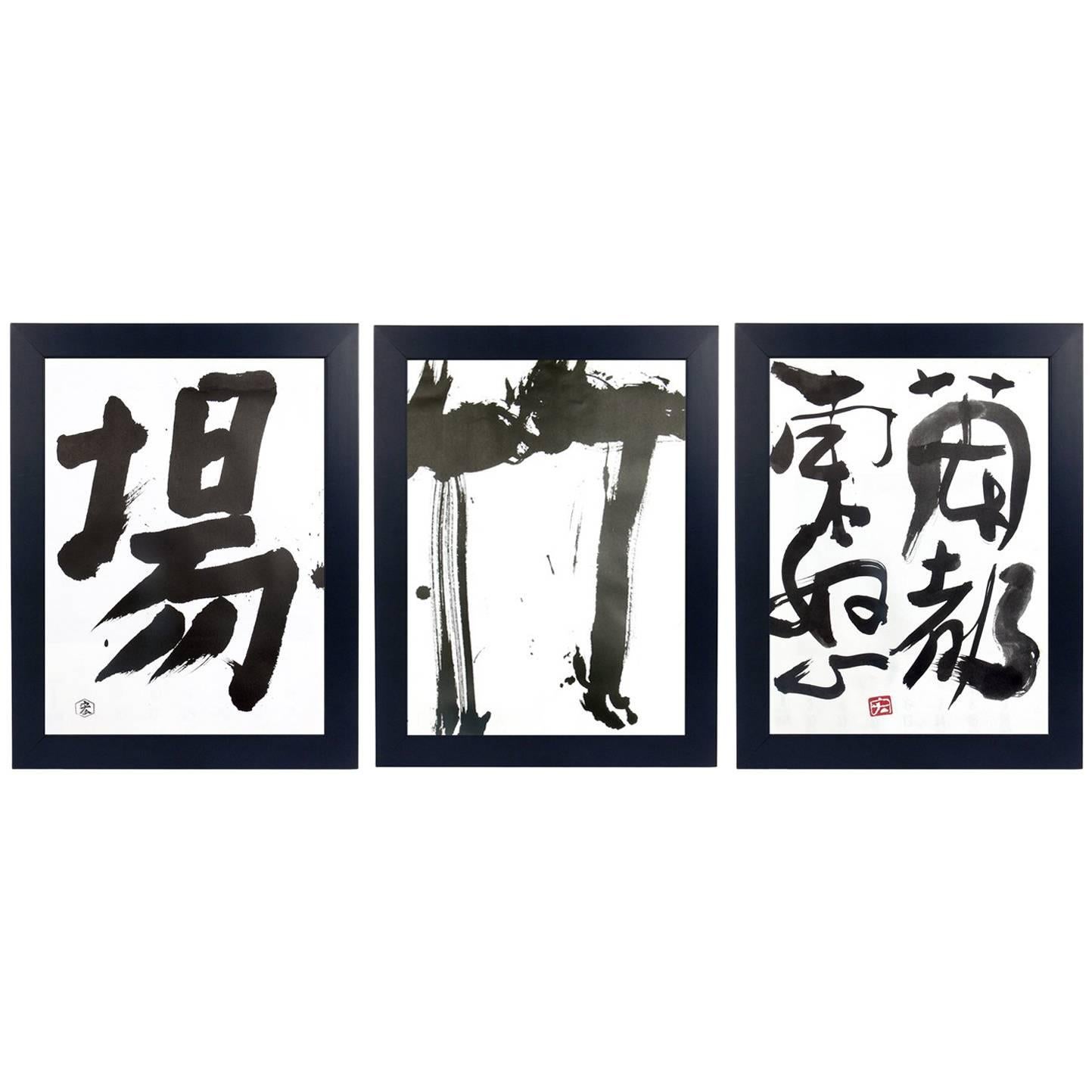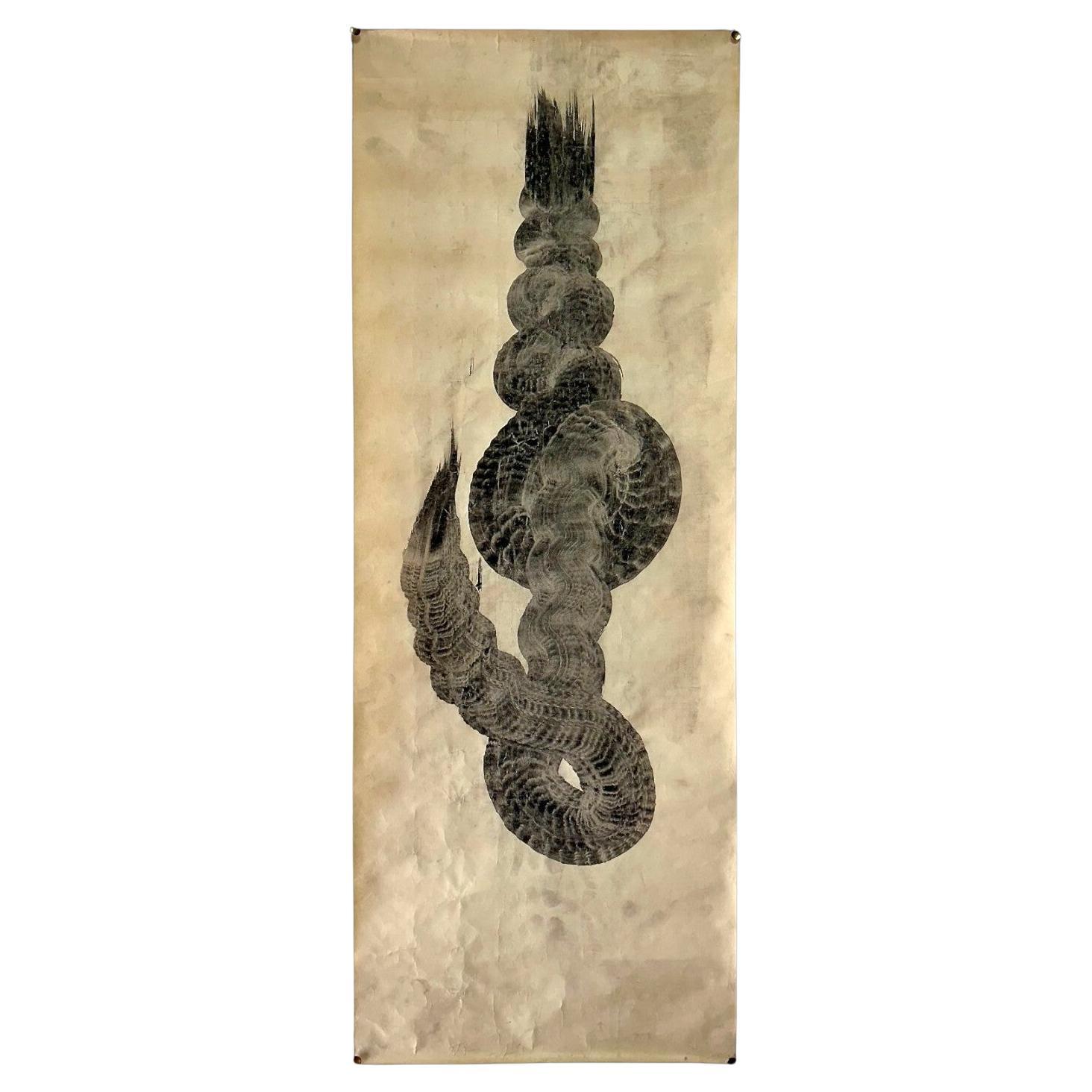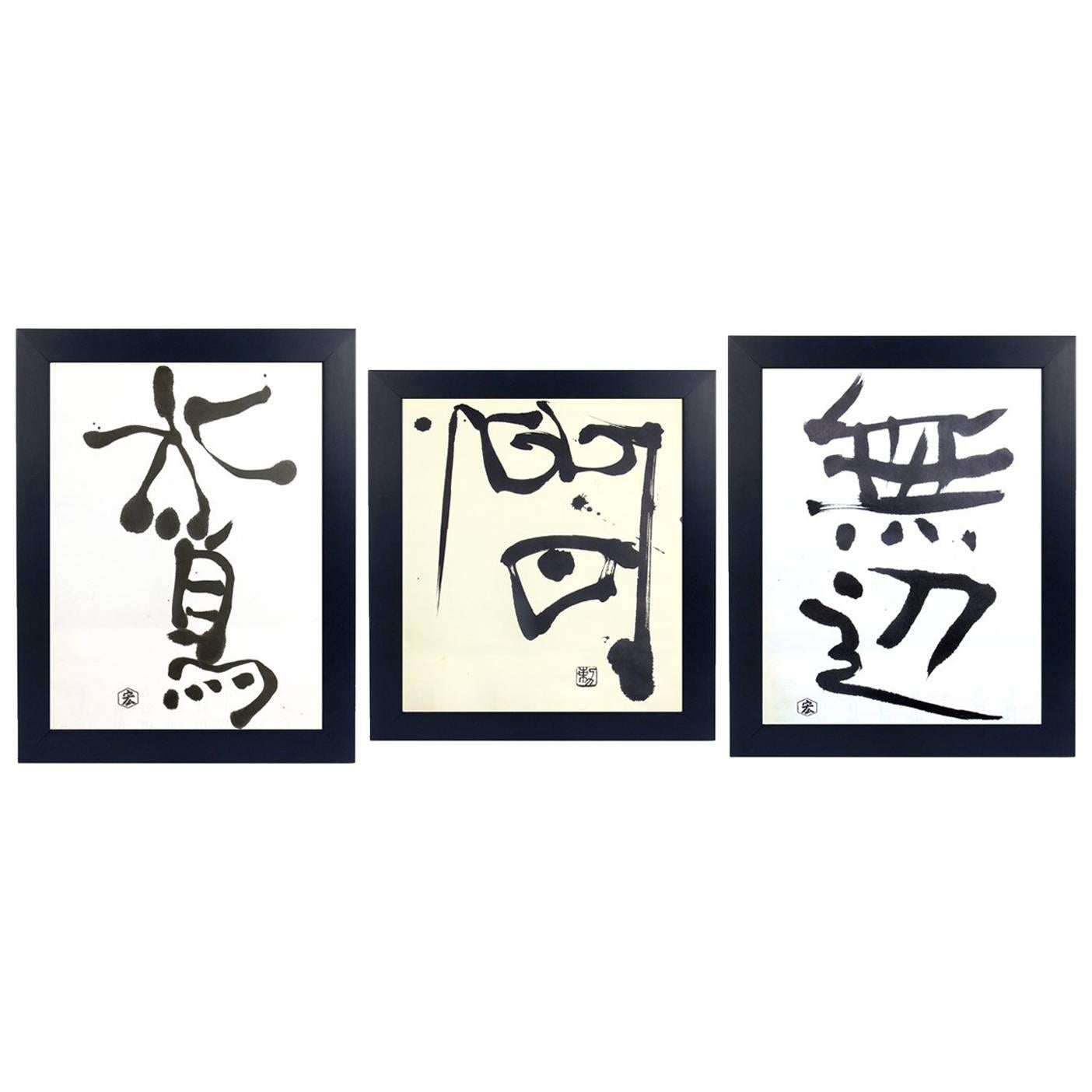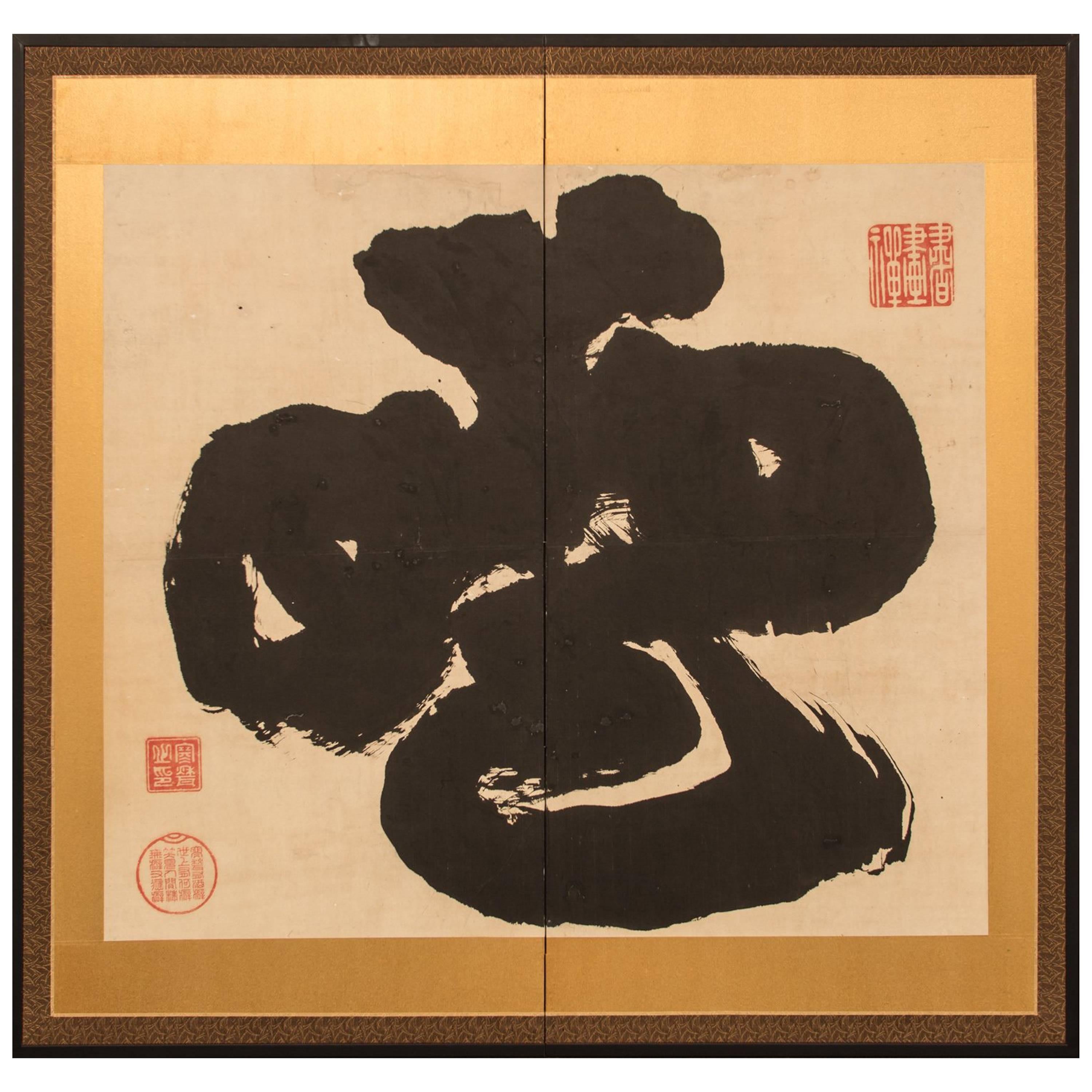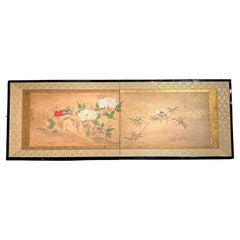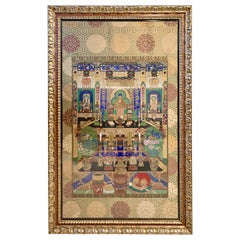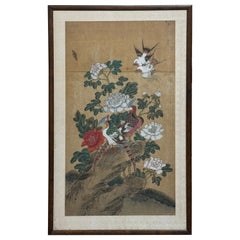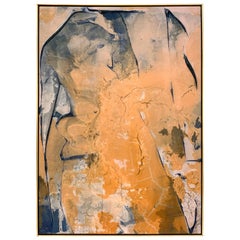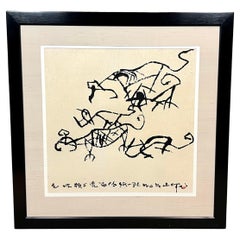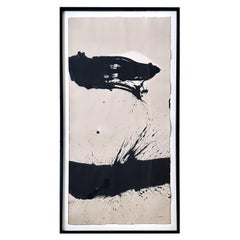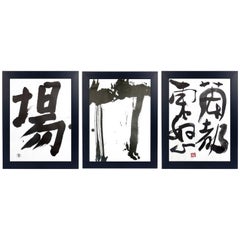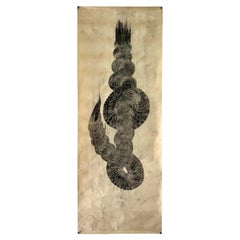Items Similar to Pair Large Framed Japanese Calligraphy "Dragon" & "Tiger", Mid 20th Century
Want more images or videos?
Request additional images or videos from the seller
1 of 8
Pair Large Framed Japanese Calligraphy "Dragon" & "Tiger", Mid 20th Century
$43,000per set
£32,875.79per set
€37,866.27per set
CA$60,256.18per set
A$67,270.36per set
CHF 35,248.66per set
MX$823,455.27per set
NOK 447,658.32per set
SEK 422,084.96per set
DKK 282,599.85per set
Shipping
Retrieving quote...The 1stDibs Promise:
Authenticity Guarantee,
Money-Back Guarantee,
24-Hour Cancellation
About the Item
A large and powerful pair of Japanese calligraphic works, mid 20th century, Japan. One reading "Dragon", the other reading "Tiger". Ink on handmade paper, framed.
The brush strokes bold and brash, using the force the painter to move the ink around the wonderfully thick and textured handmade paper. The energy of the calligrapher is evident in each stroke and splash of ink.
Taken together, the paintings are about balance, capturing the essence of "inyo" (yin and yang). In Japanese culture, the tiger represents the earth and feminine energy, "in", while the dragon represents the heavens and the masculine energy, "yo".
The artist has captured both energies perfectly. The tiger expresses the feminine energy through graceful curves and undulations. Even more impressive is that this appears to be a single stroke painting, meaning the painting was completed in one continuous motion, without the brush leaving the paper.The dragon expresses the masculine energy through bold and aggressive strokes, with the ink splattering in dramatic ways across the painting.
The paintings mounted floating within a black framed shadowbox with natural linen background and acrylic front. Each with two hooks for hanging on the back.
Provenance:
Christie's, NY
Michael Smith's Palladian Villa.
- Dimensions:Height: 62.25 in (158.12 cm)Width: 37.25 in (94.62 cm)Depth: 2 in (5.08 cm)
- Sold As:Set of 2
- Style:Expressionist (Of the Period)
- Materials and Techniques:
- Place of Origin:
- Period:
- Date of Manufacture:Mid-20th Century
- Condition:Wear consistent with age and use. Minor scratching to the sides of the frames.
- Seller Location:Austin, TX
- Reference Number:1stDibs: LU894721024112
About the Seller
5.0
Platinum Seller
Premium sellers with a 4.7+ rating and 24-hour response times
Established in 2001
1stDibs seller since 2010
345 sales on 1stDibs
Typical response time: <1 hour
- ShippingRetrieving quote...Shipping from: Austin, TX
- Return Policy
Authenticity Guarantee
In the unlikely event there’s an issue with an item’s authenticity, contact us within 1 year for a full refund. DetailsMoney-Back Guarantee
If your item is not as described, is damaged in transit, or does not arrive, contact us within 7 days for a full refund. Details24-Hour Cancellation
You have a 24-hour grace period in which to reconsider your purchase, with no questions asked.Vetted Professional Sellers
Our world-class sellers must adhere to strict standards for service and quality, maintaining the integrity of our listings.Price-Match Guarantee
If you find that a seller listed the same item for a lower price elsewhere, we’ll match it.Trusted Global Delivery
Our best-in-class carrier network provides specialized shipping options worldwide, including custom delivery.More From This Seller
View AllJapanese "Magpie and Peony" Two Panel Screen, Edo Period, 18th/19th century
Located in Austin, TX
A sublime Japanese two panel "Magpie and Peony" screen, ink and color on paper, Edo Period, late 18th or early 19th century, circa 1800, Japan.
The two panel screen features a wond...
Category
Antique Early 19th Century Japanese Edo Paintings and Screens
Materials
Copper
Large Framed Japanese Buddhist Amida Temple Hall Painting, Mid-19th Century
Located in Austin, TX
A large and incredible Japanese painting of a Buddhist temple hall with Amida Nyorai, late Edo or early Meiji period, mid-19th century, Japan. Mounted wit...
Category
Antique Mid-19th Century Japanese Meiji Paintings and Screens
Materials
Brocade, Silk, Acrylic, Wood, Paint
Chinese "Birds and Peony" Ink and Color on Silk Painting, Qing Dynasty, China
Located in Austin, TX
A charming Chinese "Birds and Peony" painting, ink and color on silk, framed and glazed, Qing Dynasty, late 19th century, China.
The delightful and colorful painting features a scen...
Category
Antique Late 19th Century Chinese Qing Paintings and Screens
Materials
Metal
Walter Darby Bannard "Soft Companion", 1977, Acrylic on Canvas
Located in Austin, TX
A wonderful abstract painting by Walter Darby Bannard (1934-2016), entitled "Soft Companion", dated 1977, acrylic on canvas, in a wood and brass frame.
A wonderful abstract or lyr...
Category
Vintage 1970s American Expressionist Paintings
Materials
Canvas, Acrylic
Japanese Six Panel Screen with Hotei, Edo Period, Early 19th Century
Located in Austin, TX
A delightful Japanese six panel painted paper screen featuring the beloved figure Hotei, Edo Period, early 19th century.
Hotei, called Budai in China, and known as the Laughing Buddha or Fat Buddha in the West, is considered to be an emanation of Maitreya, the Buddha of the Future.
In Japan, he also holds a special place as one of the Seven Lucky Gods, being the god of fortune, and protector of children.
He is always portrayed as a mirthful and corpulent man, dressed in loose robes that show off his round belly. He carries a sack with him, said to be filled with treasure. As the protector of children, he is often portrayed with them playing on or around him, as he is here. The children portrayed in this screen are dressed in Chinese style clothing...
Category
Antique Early 19th Century Japanese Edo Paintings and Screens
Materials
Silk, Paper
Large Antique Chinese Hand Painted Wallpaper Section in Carved Hardwood Frame
Located in Austin, TX
A wonderfully charming large and colorful Chinese hand painted wallpaper section in a carved and shaped hardwood frame. The wallpaper dates to the first half of the 20th century or e...
Category
Early 20th Century Chinese Chinese Export Paintings and Screens
Materials
Hardwood, Paper
You May Also Like
Gu Gan (Born 1942 Changsha, China) Ink on Rice Paper Titled "Tiger" Circa 1990
Located in San Francisco, CA
An ink of rice paper by the well-known Chinese calligrapher and artist Gu Gan. Born in 1942 in Changsha, the capital of Hunan province, Gu Gan attended art school in Beijing in the e...
Category
1990s Chinese Modern Paintings
Materials
Paper, Plexiglass, Hardwood
Large Framed Abstract Ink Painting by Qin Feng
Located in Atlanta, GA
Artist: Qin Feng (Chinese B. 1961)
Title: West Wind East Water #0616
Medium: Ink and Coffee on Silk and Cotton paper
Year of Creation: 2006
Mark: Signed with artist's mark lower right
Measurement: 74 1/2" x 37 1/4" (with frame)
Provenance: From a prominent American British collection.
Purchased from Michael Goedhuis in 2006 for 55000usd (A copy of Art Metadata entry from the previous owner will be included).
Biography (Courtesy of Artsy)
Considered a leading ink painter, Qin Feng represents China’s avant-garde movement. Invited by the German government to curate an exhibition in Germany in order to promote cultural exchange between the two countries, Qin moved to Berlin in the ’90s where he began to fuse Western modernism and the Chinese ink tradition in abstract compositions. Feng uses traditional calligraphic materials but employs his brush with the unrestrained energy of the Abstract Expressionists. Inspired by his upbringing in Xinjiang, a multicultural intersection of the silk roads, Qin has incorporated Chinese, Uighur, Arabic, and Russian language into his work. In recent years, Qin has overlaid pieces of ancient Chinese furniture...
Category
Early 2000s German Post-Modern Paintings and Screens
Materials
Paper
Collection of Abstract Japanese Calligraphy Prints
By Sōfu Teshigahara
Located in Atlanta, GA
Collection of abstract Japanese calligraphy prints, possibly after Sofu Teshigahara, Japan, circa 1970s. These were from a collection that we purchase...
Category
Vintage 1970s Japanese Mid-Century Modern Prints
Materials
Glass, Wood, Paper
One stroke calligraphy painting of Dragon . 20th century Zen calligraphy
Located in Fukuoka, JP
Stunning one stroke Zen calligraphy painting depicting Dragon. Ink on paper. Sold as it is , please refer to the photos.
Age:20th ...
Category
20th Century Japanese Showa Paintings and Screens
Materials
Paper
Collection of Abstract Japanese Calligraphy Prints
By Sōfu Teshigahara
Located in Atlanta, GA
Collection of abstract Japanese calligraphy prints, possibly after Sofu Teshigahara, Japan, circa 1970s. These were from a collection that we purchase...
Category
Vintage 1970s Japanese Mid-Century Modern Prints
Materials
Glass, Wood, Paper
Japanese Two Panel Screen, Zen Calligraphy Character Cloud
Located in Hudson, NY
Meiji period (1868 - 1912) calligraphy painting. Abstract character reads: Kumo (cloud). Seal on the upper right reads Shogazen, seal on the upper left reads Hosai. Ink on mulberr...
Category
Early 20th Century Japanese Meiji Paintings and Screens
Materials
Silk, Wood, Paper
More Ways To Browse
Mid Century Screen
Japanese Mid Century Furniture
Japanese Mid Century
Midcentury Japanese Art
Curved Screens
Japanese Dragon
Japanese Screens Large
Asian Tiger
Japanese Brushes
Asian Tiger Art
Pair Of Japanese Paintings
Japanese Tiger
Pair Of Japanese Screens
Asian Dragon Paintings
Japanese Brush Painting
Tiger Screen
Vintage Yin Yang
Calligraphy
